Health and economic crises mark tenth anniversary of war in Syria
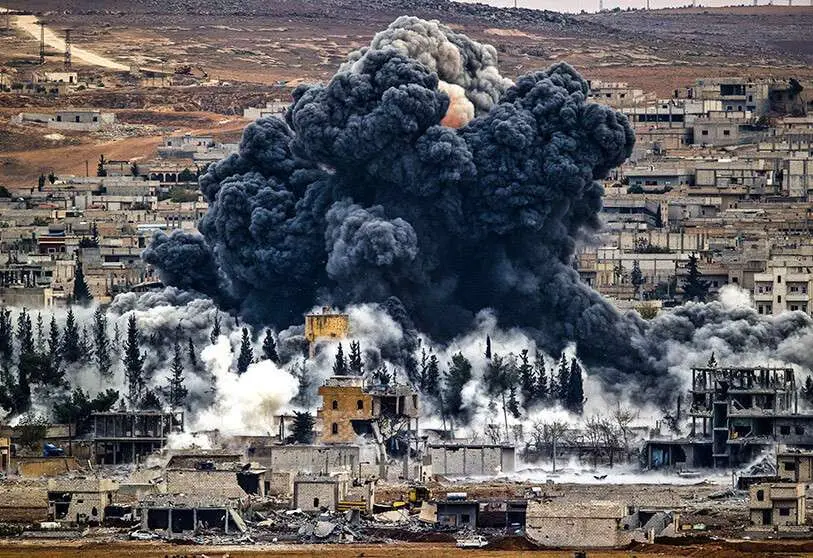
The war in Syria reached its tenth anniversary on 15 March. Although it has been approximately a year since the last fighting, the consequences of the conflict have provoked a devastating political, social and economic crisis. In this context, the pandemic has finally collapsed the health system. Hundreds of facilities have been bombed, many medical personnel have died or fled, and there are still severe shortages of supplies in many parts of the country.
"The population is facing a desperate situation. They see no way out of the conflict, no sign of improvement. Their situation is compounded by a severe economic crisis and the COVID-19 pandemic. And they live in constant fear of a new military offensive, which would mean another displacement and the need to find a safe place in a very limited geographical area," says Francisco Otero y Villar, Médecins Sans Frontières' general coordinator for Syria.
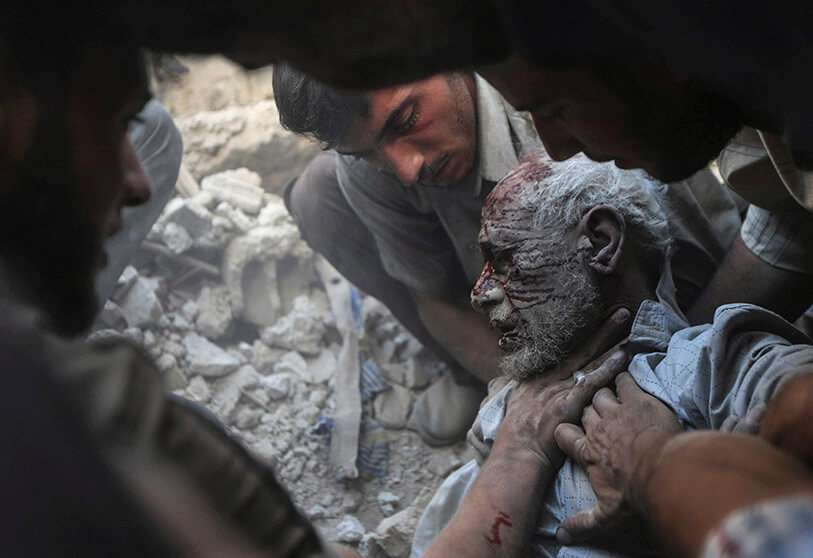
"Ten years ago today... Ten years ago today, since the protests of the so-called Arab Spring, so much praised in the Western media, quickly turned into an armed conflict in Syria on 15 March 2011," says Nabil Antaki, a Syrian-Canadian doctor and member of the board of the Blue Marists, the NGO with which Manos Unidas has been collaborating for the past two years.
The much-vaunted Arab Spring in Syria soon turned into, in Antaki's words, "a long, harsh and unbearable winter that has destroyed the country". These ten years of conflict have resulted in the deaths of more than 400,000 people, the flight and exile of some 5.6 million Syrians, the vast majority of whom are located in countries such as Turkey, Lebanon, Jordan, Iraq and Egypt. In addition, more than 6 million people have been displaced inside the country. And up to 13 million people are in need of humanitarian assistance inside, according to the UN.
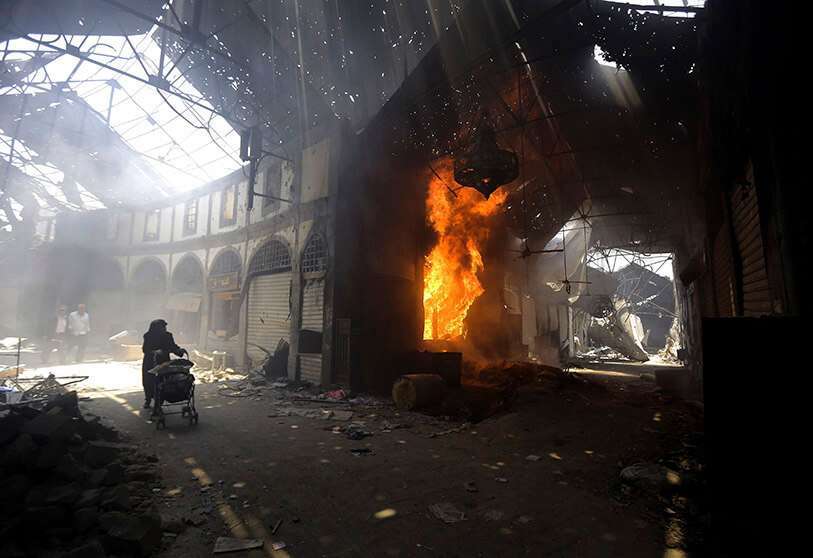
Nearly 1 million people were displaced during the last offensive in northwestern Syria, which lasted until March 2020. Since then, the intensity of fighting in the area has decreased considerably following the ceasefire a year ago, yet many people - including women and children - remain outside their homes and live in dire conditions.
"Our children have been robbed of their childhood, the dreams of our teenagers are gone and the future of our youth is no more," laments Antaki. The war has thwarted the aspirations of millions of people. A whole generation is lost. No education and no prospects in life. Syria used to be a "safe, stable, prosperous and secular country", Antaki explains. "A country where not everything was perfect, far from it, but no reform justifies destroying our country and sacrificing generations of Syrians," says the Syrian-Canadian doctor.
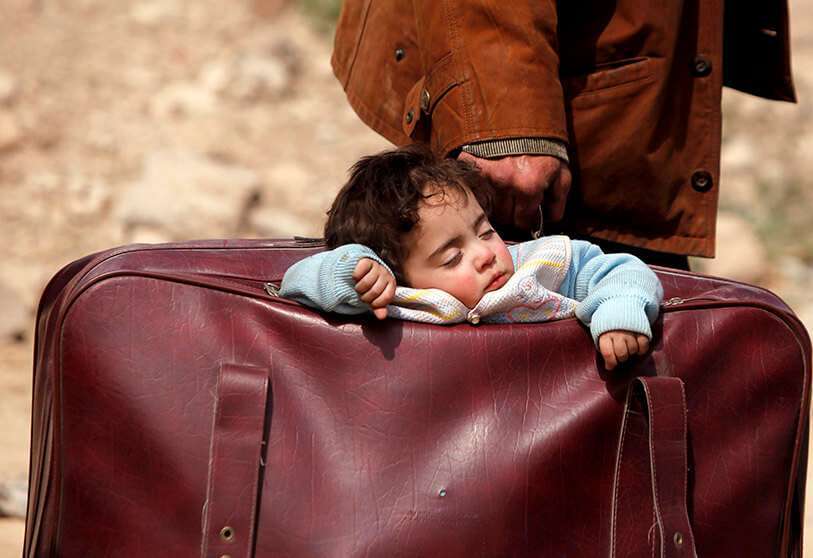
"We have been at war for 10 years. More than the two world wars of the last century combined. And suffering, grief, poverty and misery have become part of our daily life; a life that is a nightmare," he laments. "Although my compatriots deserve the title of world champions of resilience, their rope is about to run out. They just want to live normally, like all the people of the world, and with dignity," Antaki pleads.
People are no longer dying from bombings or the use of chemical weapons, but from hunger. The blockade and sanctions imposed by the European Union and the United States on the regime of Bashar al-Assad are suffocating the innocent civilian population. The economic crisis is unprecedented. "In a country with a constantly devalued currency and rampant inflation, the cost of living is skyrocketing. Seventy per cent of families live below the poverty line and most need the help of NGOs," says Antaki.
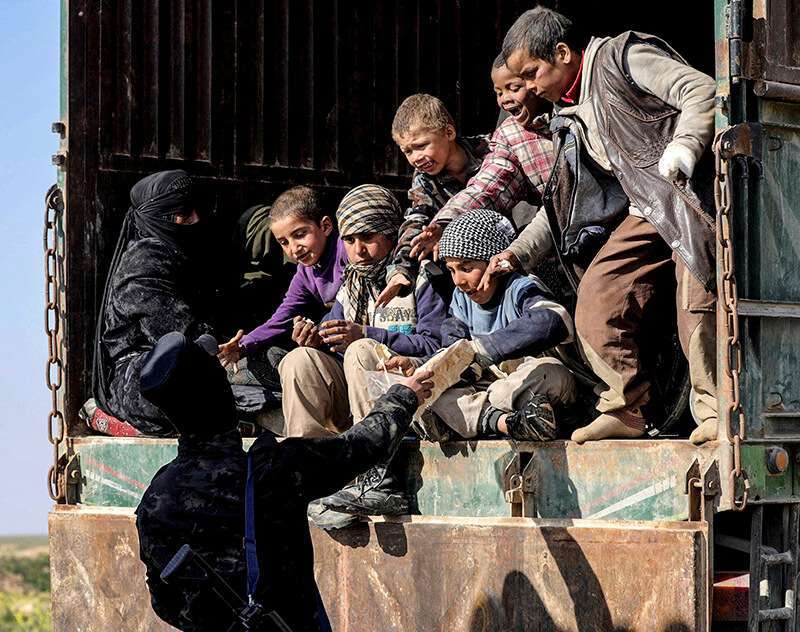
Human resources in the health sector were limited even before the pandemic. Hospitals often had to share staff to maintain medical care, but cooperation is now necessary after a significant increase in infections by health workers. In addition, the limited diagnostic capacity for COVID-19 in northern Syria makes it difficult to detect the virus.
Nearly 30,000 cases and nearly 900 deaths have been confirmed in the north of the country. The number of infections has declined in recent weeks, although this decline can be interpreted as a good sign, it could also be related to the lack of follow-up resources.
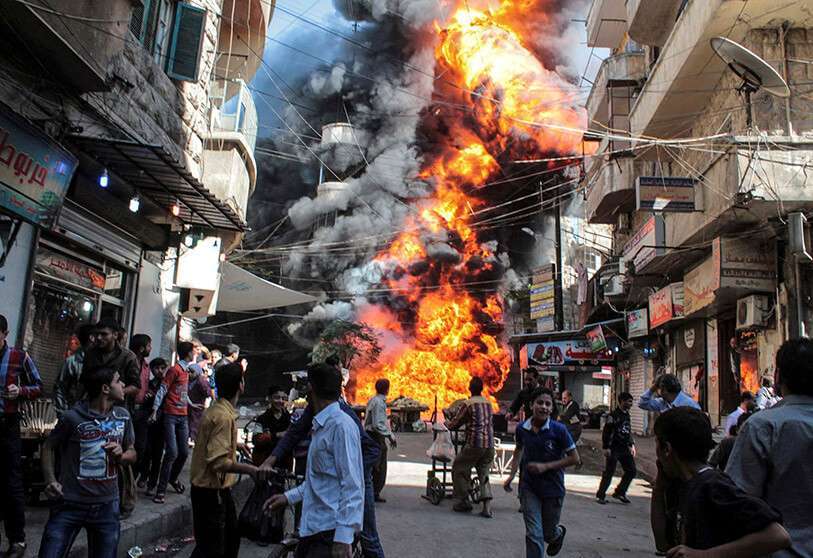
In this context, the Blue Marists work in collaboration with Manos Unidas. The projects initiated by the NGO cover all areas "from immediate humanitarian aid to the creation of very basic micro-enterprises, through non-formal education for children who cannot go to school, the distribution of hot meals to elderly people living alone, sewing classes and clothes production, theatre companies as therapy...", lists África Marcitllach, Project Coordinator for Manos Unidas in the Middle East.
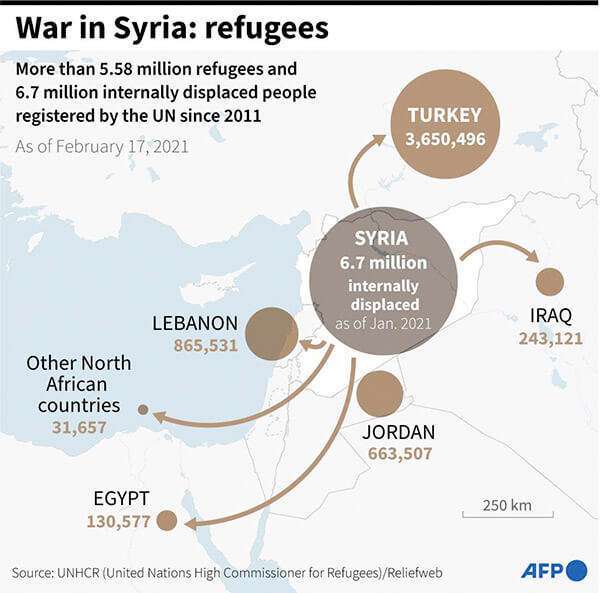
"The work of the Blue Marists is heroic," says Marcitllach. "Some of them have dual nationality and could have left Syria at any time, but they have chosen to stay among the most vulnerable and unprotected population; accompanying them in their life process and opening projects that can improve their situation". In the last two years, Manos Unidas has supported the Blue Marists with six projects worth a total of 284,123 euros.
Médecins Sans Frontières is also witnessing the continuing deterioration of the humanitarian situation in the north of the country. The organisation has been working in different areas of Syria, donating medical supplies, setting up hospitals and clinics, supporting medical facilities and health networks, among other tasks. In the north-east of the country, in the provinces of Idlib and Aleppo, MSF runs several hospitals and regulates the distribution of basic necessities. The organisation manages regular activities in IDP camps and informal settlements, such as Al-Hol.

Both organisations work on shifting sands. There is constant insecurity, as Médecins Sans Frontières is banned from entering areas controlled by the Al-Asad government. While Manos Unidas sees the situation in which millions of Syrians find themselves as unacceptable, and has publicly denounced "the desperate situation in which international strategic interests are plunging the population".
The Al-Asad regime decided to hold on to power at all costs. So far it has managed to preserve its rule, but this has been thanks to the backing of its most direct allies: Russia and Iran, with whom it shares sovereignty. Faced with a poorly organised, politically weak and declining opposition, the president has called for elections in April. However, it does not appear that there will be a paradigm shift in Syrian politics, where the elections have already been described as "illegitimate".
Different powers share the Syrian pie. Much of the country is under regime control, although there are several rebel strongholds in the north, supported by Turkey. Kurdish militias dominate another large part of the country, while Idlib province is still ruled by the jihadist HTS organisation.








